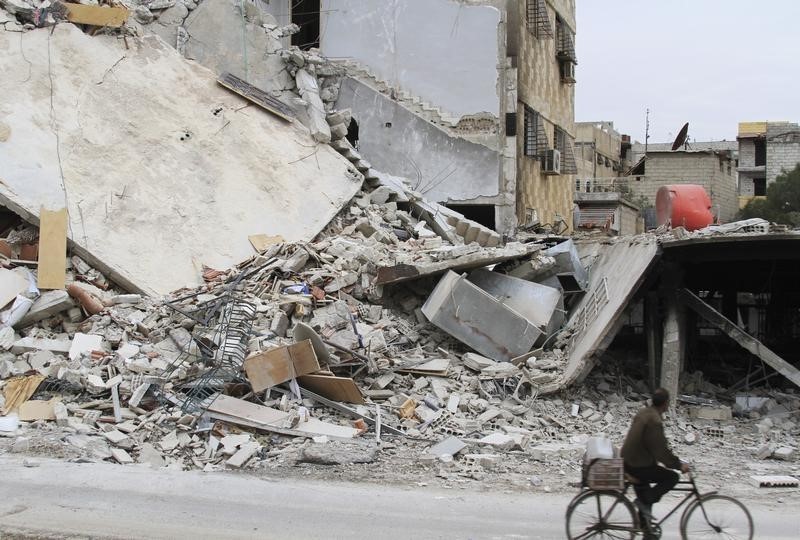BEIRUT (Reuters) - The Red Cross said an aid convoy was refused entry to a besieged Syrian town on Thursday, blocking what would have been the first supplies for its residents for more than three years.
The aid group did not say who stopped the delivery to Daraya, a town on the outskirts of Damascus, held by rebels and besieged by government forces.
But the United Nations said this month that Syria's government was refusing U.N. demands to deliver aid to hundreds of thousands of people.
"Sadly our aid convoy", jointly organised with the U.N. and Syrian Red Crescent, "was refused entry to Daraya, despite being given prior clearance from all sides," the International Committee of the Red Cross (ICRC) said on Twitter.
The Syrian Observatory for Human Rights, a British-based monitoring group, said government forces shelled parts of Daraya on Thursday. There was no immediate comment from the government.
The town borders a military airport used by Russian planes which have been conducting air strikes for President Bashar al-Assad since September.
United Nations experts estimate around 4,000 civilians are trapped there, senior U.N. official Jan Egeland told reporters in Geneva on Thursday, before news emerged of the blocked convoy.
The United Nations was hoping to send assessment teams into other besieged areas across Syria in coming days, but was struggling to reach people caught up in new crises still emerging in the conflict, he added.
Teams had also had so far failed to reach the al Waer suburb of the city of Homs, which Egeland said seemed to meet the criteria for a siege: full military encirclement, no humanitarian access and no movement for the civilian population in or out of the area.
"Al Waer is one of these places where heartbreaking things happen, where we have a convoy fully loaded, standing for days as it did last week, with supplies that we know there is a desperate need for. And then in the end you are told you have to unload," he said.
In total, U.N. aid convoys still did not have government permission to reach around half the 905,000 people they want to help, Egeland said.
In one small step forward, a U.N. de-mining assessment mission had visited the central city of Palmyra, recently re-taken from Islamic State, and de-mining might soon be allowed, Egeland told reporters.

The United Nations had also received a conditional green light to go into Arbin, Zamalka and Zabadin, but with supplies for fewer people than were in the towns, he added.